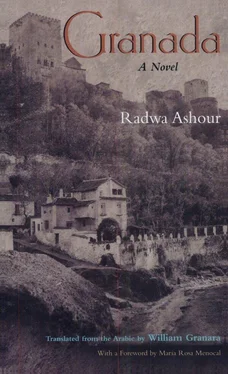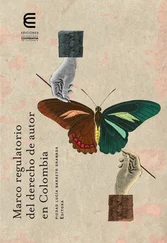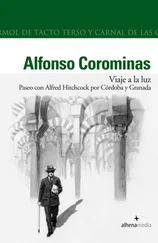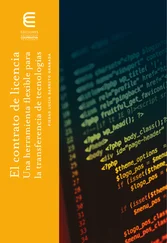Radwa Ashour - Granada
Здесь есть возможность читать онлайн «Radwa Ashour - Granada» весь текст электронной книги совершенно бесплатно (целиком полную версию без сокращений). В некоторых случаях можно слушать аудио, скачать через торрент в формате fb2 и присутствует краткое содержание. Год выпуска: 2003, ISBN: 2003, Издательство: Syracuse University Press, Жанр: Современная проза, Историческая проза, на английском языке. Описание произведения, (предисловие) а так же отзывы посетителей доступны на портале библиотеки ЛибКат.
- Название:Granada
- Автор:
- Издательство:Syracuse University Press
- Жанр:
- Год:2003
- ISBN:9780815607656
- Рейтинг книги:5 / 5. Голосов: 1
-
Избранное:Добавить в избранное
- Отзывы:
-
Ваша оценка:
- 100
- 1
- 2
- 3
- 4
- 5
Granada: краткое содержание, описание и аннотация
Предлагаем к чтению аннотацию, описание, краткое содержание или предисловие (зависит от того, что написал сам автор книги «Granada»). Если вы не нашли необходимую информацию о книге — напишите в комментариях, мы постараемся отыскать её.
Granada — читать онлайн бесплатно полную книгу (весь текст) целиком
Ниже представлен текст книги, разбитый по страницам. Система сохранения места последней прочитанной страницы, позволяет с удобством читать онлайн бесплатно книгу «Granada», без необходимости каждый раз заново искать на чём Вы остановились. Поставьте закладку, и сможете в любой момент перейти на страницу, на которой закончили чтение.
Интервал:
Закладка:
Saad would laugh and thank God that Solinas didn’t understand Arabic, or else a fresh quarrel, fiercer than before, would flare up.
Despite the daily skirmishes between Antonio Solinas and Muhammad BuSadeeq, the four of them bonded together. Each one told his story while the others shared in both the sad and the humorous details. At times they told stories and at others they just laughed together. Once in a while they would feel defeated and retreat, each one of them, into the darkest chambers of his soul. Saad was a part of all of this, and he was able to bear his nights and days because they were there, and because that strange little box in the head held some sparkling gems that glowed in the darkness of imprisonment. The faces of those he loved came to him clearly, throbbing with life, as though they were the faces in those astonishing colorful pictures in which, God only knows how, light and darkness and radiant colors capture human faces. Those faces that seem as though they’re about to come out of the frames hung on the wall behind some inquisitor or another, and exchange a word or two with you, alleviating the gloom of the investigation and softening the oppressive and stern look of the inquisitor.
Saleema’s face came to him, with its leanness and olive complexion. Her blue eyes mesmerize as they gleam with a defiant boldness or perhaps only an incisiveness that claims to be defiant. Her lips are full and luscious, and thick, curly hair cascades down her shoulders. In prison Saad saw Saleema more clearly than he ever saw her before. He envisioned her face and her figure, and a slight bend in her torso when she walked as though she wanted to race her own steps by any means. In prison he heard her voice as she talked, as she laughed, as she yelled in anger, and even when she didn’t utter a word. He saw her as a child during Abu Jaafar’s lifetime and as a young woman who occupied his heart and caused his sleepless nights. And he saw her as a woman who would approach and give, but then would turn away for no reason.
He pictured Abu Jaafar just as if death had not taken him many years ago. He saw him as plain as day, with his imposing stature, his flowing robe, and a subtle smile that could almost be detected on his lips. But it wasn’t detected and it left something of his soul in the bewildering look in his eye, something between a kindness that came from the heart and a reproachfulness that reined in the excess flow of the heart’s gentleness.
And the face of his friend Naeem came to him, bright, luminous, like the rays of the sun beaming directly on him, bestowing to him something of its glow emanating from his honey-colored eyes, the fairness of his hair, and the impetuousness of his walk, his talk, and his raucous laughter. In the solitude of your prison, you see your loved ones more often because in time there is spaciousness and because they come to you, lovingly, during your darkest hour, and they let you take pleasure in watching their faces as much as you want.
Regardless of the torture and confinement Saad suffered, he never betrayed his heart, and his tongue never betrayed him. He was careful in what he said, even to his cell mates. He never pointed to anything, close or far away, that could harm him. And when the sentence was passed down on him, it was light. The only proof against him was that he had left Granada and unlawfully associated with the inhabitants of villages near Valencia. The court cleared him of the charges of heresy, sedition, and apostasy that his inquisitors had filed against him.
21
Hasan was hoping on his way home from the inn that this journey would be a long one. His day had been heavy and cumbersome, and he was shut indoors all day long. He took breaths of the fresh, cold air and followed the lightly falling snowflakes as he settled himself along the bank of the Darro River beneath the hanging branches of the trees. His heart began to calm down in the silence of the snowy night. It wasn’t just this day that wore him down, but day after day after day when a crisis or complication of the day before pales in comparison to the next. But these days accustomed him to latch on to a scrap of hope or a flicker of light, even one as small as the eye of a needle. He held on to it, looking forward, selling illusions to himself before selling them to his friends and family, telling himself that “patience is a virtue,” that “tomorrow is another day.” But what came after that was the gloom and the dark abyss of a drowning man. When they posted the announcement that non-Christians of Valencia must convert or face confiscation of property and expulsion, Maryama burst into tears and rebuked him with words and looks. She said, “You sold my daughters, Hasan. You said, ‘I will marry them off to faraway Valencia so that they can live secure in their religion, their land, and the vast wealth of their husbands.’ But now they have no religion, no land, and no wealth!” He scolded her and said she didn’t understand a thing. He reminded her that the nobility were protecting the Arabs of Valencia, and that the wealthy and influential Arabs would be going straight to the Royal Court to overturn the edict. But when the disturbances beset Valencia and the fires of anger and civil strife ignited, he kept the information to himself and hid it from Maryama. He followed the news through the Genoese merchants, the travelers, and muleteers who were constantly going back and forth. He sent his daughters five written messages and only received one back, orally. It said, “Things are not going very well, but we are all fine. You have become a grandfather to six healthy and happy children.” Hasan relayed only the news of the grandchildren to Maryama, his mother, and Saleema. When Maryama asked their names, he replied, “I don’t know.” When his mother asked him if each of the girls gave birth to two children, or if only two had children and not the third, he replied, “I don’t know.” When asked if they were boys or girls, he also replied that he did not know. Maryama had nothing more to say, but she spent the next few days and nights in tears.
What fault is there in a drowning man latching on to a piece of wood or the branch of a tree? What crime is it to make for yourself a stained-glass lantern to brighten up the darkness of your days? Where is the sin in looking forward to a new day in hope and optimism?
Hasan saw it as a good sign the day Granada was bedecked in celebrations and fanfare, when the Alhambra Palace was awash in lights to welcome the emperor. Like many others, he went out to await the results of a meeting between the emperor and a delegation of the Arab community’s most esteemed nobility. They met to review a list of grievances and demand an investigation into them. Until only yesterday, Hasan was still basking in the light of his lantern, clinging to its flicker of hope, when the town criers made the rounds announcing more restrictions added to the already existing ones. It is forbidden to use the Arabic language and Arabic titles, to wear Arab clothing and jewelry, or to patronize Arab bathhouses. All books must be submitted for inspection, and those that contain nothing harmful will be returned. It is unlawful for Arab midwives to assist in giving birth, and the bearing of arms is prohibited. All families must leave their door open on Fridays, Sundays, holy days, and feast days, to make sure that only the sanctioned practices are followed. Adults must perform all the rituals of their new religion, and children must attend catechism classes to wean them from their fathers’ religion.
Hasan was neither able nor willing to go home that night. He walked on until he felt his nose and his extremities turning to ice. He veered off the road toward a tavern and went in.
The patrons of the tavern were seated in a main hall, huddled around a wood stove that gave the place a warm glow. They were eating and drinking, chatting and laughing boisterously. There were three women in the hall, each one holding a tambourine. At times one of them sang alone, at times they all sang together, and sometimes the patrons sang along.
Читать дальшеИнтервал:
Закладка:
Похожие книги на «Granada»
Представляем Вашему вниманию похожие книги на «Granada» списком для выбора. Мы отобрали схожую по названию и смыслу литературу в надежде предоставить читателям больше вариантов отыскать новые, интересные, ещё непрочитанные произведения.
Обсуждение, отзывы о книге «Granada» и просто собственные мнения читателей. Оставьте ваши комментарии, напишите, что Вы думаете о произведении, его смысле или главных героях. Укажите что конкретно понравилось, а что нет, и почему Вы так считаете.












